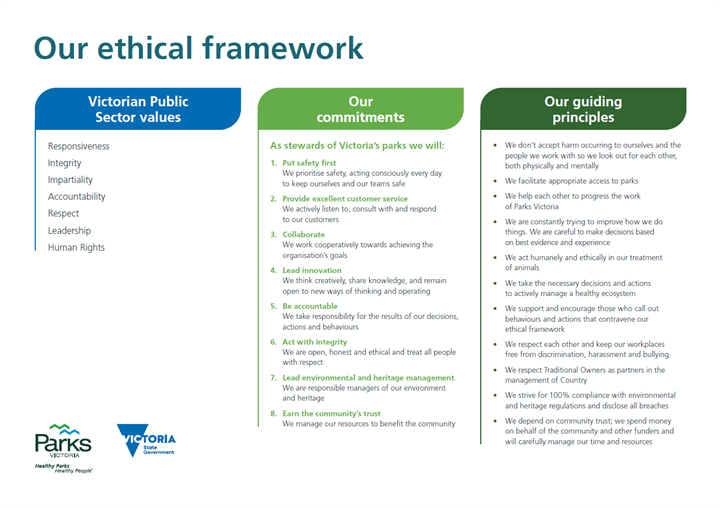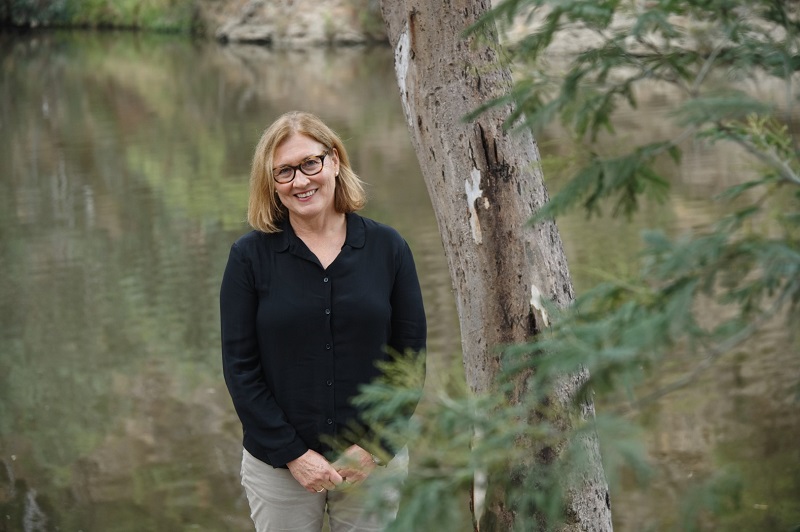IBAC Insights (newsletter)
The road to recovery; the aftermath of an ethical breach
Following investigations like IBAC's Operations Ord and Dunham, the Victorian chapter of the Institute of Public Administration Australia Victoria (IPAA) has developed – with the support of the Victorian Secretaries' Board and the Victorian Public Sector Commission – a program on integrity and ethics for public sector senior executives. The program is called the Integrity and Ethical Leadership Program (IELP).
I was one of the participants in the pilot program, which ran over three months in 2018 with senior executives from across the Victorian state and local governments. In plenary and in smaller peer groups, we heard from experts on systems thinking, examined the works of the ancient Greeks as well as more modern philosophers, and heard the direct experiences of ethical dilemmas from departmental secretaries and other prominent guest speakers. The program is designed to explore ethical ideas and to provide the language and approach to ethical thinking, in the expectation that leaders who have a strong ethical basis, will be less susceptible to corruption in the future.
The program came at a good time for me; I had acted as Chief Executive of Parks Victoria for six months after our previous CEO had been dismissed for a breach of integrity less than a year after his appointment. His contract was terminated by the Board and the matter was referred to IBAC.
In the aftermath, at Parks Victoria we struggled to understand what went wrong and why. If things can go so wrong at Parks Victoria – which is full of passionate, dedicated public servants – then they can go wrong anywhere. The feelings of betrayal felt by our staff and the undermining of the public's trust, took a long time to get over. A number of staff resigned, and morale was seriously undermined.
As a first step to recovery, the Board worked with the executive team to develop an 'ethical framework', building on the Public Sector Values and Parks Victoria's own 'commitments'. It added an additional commitment, 'to support community trust', as well as principles, to help staff interpret what the values and commitments meant. But of course, a piece of paper was never going to be enough.

The IELP program helped me understand what had gone wrong at Parks Victoria and deepened my appreciation of what building an ethical organisation might entail.
Here are some key insights I gained:
- Constant vigilance: sound structures are necessary, and organisations cannot be 'proofed' against unethical behaviour and neither can individuals. You might think you are an ethical person, you might never have done anything unethical before. But in certain circumstances, with particular pressures, would we all make the right choices?
- Moral agents: we are, however, moral agents, and we have a duty to act ethically both in our capacity as human beings and as public servants.
- Values: we need to collectively decide what our ‘ideal’ organisation looks like. What are the values that underpin that ideal organisation?
- Active practice of ethics: those values must then be kept front of mind when making decisions so that we actively embrace them. These ideas are not new, as we read in the discussions of Greek philosophers!
- Systems and processes: Dr Paul Grimes is correct, that we do need good processes and to be aware of the systems in which we operate because these can provide structure around decision making and how to behave. However, some commentators observe that the very nature of a bureaucracy, of hierarchy, can provide structural challenges to ethical decision making.
- Citizen ethics: the idea of 'citizen' ethics came from one of our speakers, Dennis Gentilin, author of The Origins of Ethical Failures. He explored why we need to examine our day to day actions. If we are not careful, we may be tempted to dismiss our poor behaviours or actions as 'minor' transgressions, but that may lead us down what the Victorian Ombudsman has called the 'slippery slope', to something more serious.
- Culture: it is often cited as a critical responsibility of a Board, but it is more complex than just setting a 'tone from the top'. There can be many layers of culture in an organisation, spoken and unspoken.
- Group dynamics: this can have a more powerful effect on our behaviour than we might like to believe. I have wondered why none of us felt able to speak up against the poor behaviours, however the pressure to conform was considerable.
- Personal issues: issues such as unconscious bias, or, in our case, fear, can play a part in making poor choices. We all had mortgages, families to support. But when is the right time to speak up? Which issue do we choose to say 'enough'? When is it more prudent to just get on with your job?
- Wellness: research has also shown that if we are tired, unfit and stressed, we are less likely to make good ethical decisions. Therefore, we need to look after ourselves and encourage our staff to look after themselves too.
What have I learned that can be implemented to strengthen Parks Victoria? Ethics is everyone's job but it is especially important for leaders to have a high degree of self awareness when making decisions and modelling behaviour – your 'leadership shadow'.
To that end, Parks Victoria's executive team has been running workshops for all staff to talk about ethics. We may have made a mistake by calling the sessions 'ethics discussions' because this is met with scepticism from some of our staff. However, during the sessions, staff have warmed to the discussions. We all want to talk about the sort of organisation we want to work for, where we value each other and work collectively to care for Victoria's wonderful parks. The challenge is to make it authentic, and somehow keep it alive so it is not yet another 'initiative' that after a spark of interest is let slowly die.
The IELP program is an important contribution to Victorian public sector ethics and integrity. As citizens and as public servants we want to trust our government, and be confident it is working in our best interests. Developing ethical leaders is a good start.
IBAC may conduct a preliminary inquiry to determine whether to dismiss, refer or investigate a complaint or notification. IBAC conducted a preliminary inquiry into the conduct of former Parks Victoria CEO Bradley Fauteux and determined it did not meet IBAC's threshold for prioritizing and investigating suspected serious and systemic corrupt conduct. As a result the matter was closed.
IPAA Victoria is the not-for-profit member-based association for those working in, and with, the public sector in Victoria. The IPAA Victoria Senior Executive IELP will be delivered twice in 2019. To find out more, or register your interest visit in the IPAA Victoria website.


